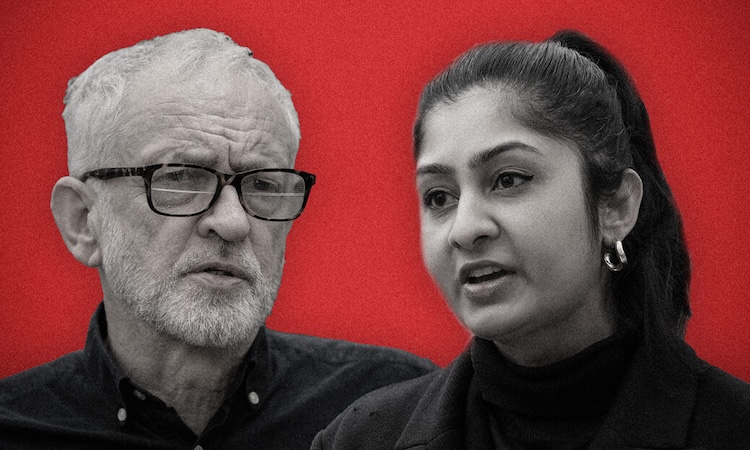With his own backbenchers starting to panic at his government’s failure to get a grip on the social crisis, the past few weeks have seen prime minister Boris Johnson becoming increasingly prone to PR gaffes and U-turns.
In particular, Tory MPs who recently won traditionally Labour seats in working-class constituencies (on the back of public anger about Labour’s renegacy over Brexit) will now be feeling the heat from their unaccustomed new constituents, who, having successfully given the Labour turncoats the boot, are now turning to demand that the Tory government act decisively in handling the worsening social and economic crisis.
Three recent social policy zig-zags sum up the weak and indecisive nature of the leadership on offer.
Health surcharge U-turn and benefits gaffe
When it was revealed that tax-paying NHS and care home staff from overseas, whose hard and risky work is in the frontline against Covid-19, were being stung for a further £400 health surcharge, there was a wave of condemnation – including from some Tory MPs.
Boris Johnson was forced to do a U-turn, announcing the abolition of the surcharge for said workers.
Then came the gaffe over the rule, in place for the past ten years, which says that migrant workers who have been given the status of ‘no recourse to public funds’ (NRPF) as a condition of their being granted leave to remain, cannot claim state benefits, including universal credit, employment support allowance, housing benefit or help with council tax payments.
Tackled on this rule by Labour MP Stephen Timms in front of the Commons liaison committee, a flustered Johnson revealed his gross ignorance of the whole matter. The dialogue was priceless.
Boris Johnson: “Hang on Stephen. Why aren’t they eligible for universal credit or employment support allowance or any of the other [benefits]?”
Stephen Timms: “Well, it’s a very good question. It’s because they have ‘no recourse to public funds’. That’s a condition that’s attached to their leave to remain. They’ve been here for years, their children have been born in the UK but, because for a ten-year period, we have this no recourse to public funds, at the moment they can get no help at all.”
Boris Johnson: “I’m going to have to come back to you on that Stephen. Clearly people who have worked hard for this country, who live and work here, should have support of one kind or another. But you’ve raised a very, very important point. The condition of their leave to remain is that they should have no recourse to public funds.
“I will find out how many there are in that position and we will see what we can do to help.” (Boris Johnson hints at U-turn on universal credit ban for thousands of migrants after ‘jaw-dropping’ committee grilling by Matt Honeycombe-Foster, Politics Home, 27 May 2020)
But a week later, the promise to review the NRPF rule was summarily ditched as the prime minister sought to muddy the waters, muttering that, after all, those affected were not excluded from all public funds.
“They may be eligible for coronavirus job retention scheme funds or self-employed income support scheme funds. Indeed if they have paid into the benefit system, they may be eligible also for certain benefits.”
When journalists cornered a Downing Street spin doctor and asked if Johnson’s remarks meant effectively that it was “case closed”, with no review of NRPF in the offing, he replied in the affirmative, saying: “That is his answer, as far as I know.”
As the Joint Council for the Welfare of Immigrants (JCWI) pointed out, anybody classified as NRPF who managed to “jump through the hoops” and access some support by proving “actual destitution” would still have to wait another 10 years to win a permanent settlement. (Boris Johnson quickly drops pledge to explore extra help for migrants left destitute by benefit rules by Rob Merrick, The Independent, 3 June 2020)
Free school meals U-turn
The third own goal came over the government proposal to end free school meals over the summer break, confronting thousands of families with the prospect of real hunger.
This callous move naturally sparked widespread public anger, further boosted by a Twitter campaign launched by Manchester United’s Marcus Rashford. Prominent amongst the critics, again, were Tory backbenchers nervous about the mood of their own constituents.
Initially, the government seemed to dig its heels in and brazen it out, with ministers drawing straws over who was going to go out and publicly defend the indefensible. But then came the U-turn.
“In an embarrassing about-face, the prime minister said that on Tuesday he had called the England and Manchester United striker to explain the reversal, and made the remarkable claim that he had only become aware of Rashford’s interest in the issue earlier in the day.
“Yet 24 hours before, No 10 had rejected the footballer’s plea for it to keep paying for the £15-a-week vouchers over the summer, and ministers had been sent out to defend the government’s position. But with Conservative MPs threatening to rebel against the government, Downing Street retreated and announced a new £120m ‘covid summer food fund’ for 1.3 million pupils in England.”
As the children’s commissioner for England, Anne Longfield, pointed out, whilst the continuation of the voucher system over the holidays was welcome, “There will still be four million children living in poverty, a number that could increase following the covid crisis.” (Johnson makes U-turn on free school meals after Rashford campaign by Rajeev Syal, Heather Stewart and Helen Pidd, The Guardian, 16 June 2020)
Any halfway competent capitalist government should have found it child’s play to dress up this paltry measure as a humanitarian triumph. Instead, it got the worst of all worlds, turning a potential minor PR win into another own goal.
This sorry tale of multiple prime ministerial cock-ups, following on the heels of public disillusionment over the too-little-too-late lockdown and its chaotic easing, not to mention the deadly PPE and testing fiascos, puts a big question mark over the PM and his ability to command even the respect of his own MPs, let alone the rest of the country.
For the ruling class, the problem is who the hell to put in his place.















